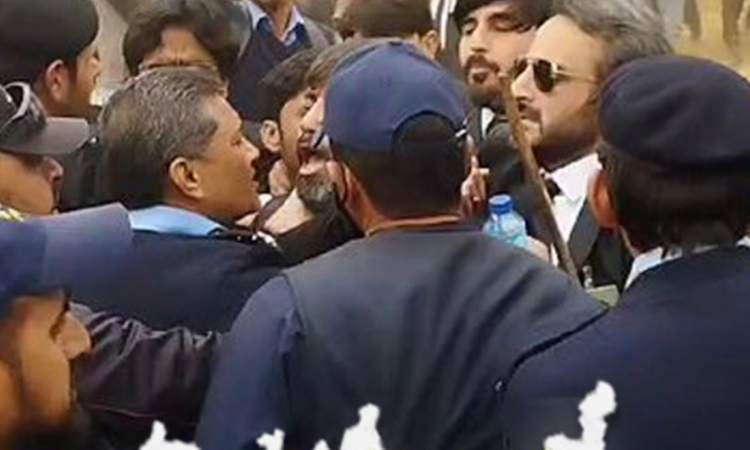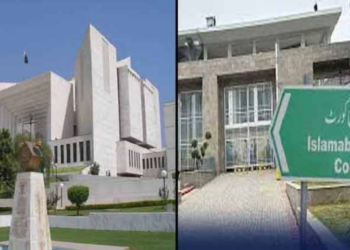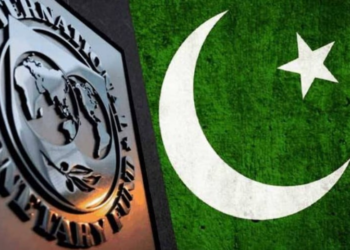Islamabad, February 10, 2025: A protest by lawyers in Islamabad against judicial appointments and the 26th Constitutional Amendment has escalated into violent clashes with police, resulting in road blockades and the closure of entrances to the Red Zone. The protests coincide with a key meeting of the Judicial Commission, which is set to discuss the appointment of eight new judges to the Supreme Court.
As lawyers gathered to march towards the Supreme Court, heavy security was deployed along Constitution Avenue, where police attempted to halt their progress. Tensions flared when demonstrators clashed with security forces, who aggressively tried to block their path. The protestors, undeterred, continued their efforts to march forward, with some heading towards D-Chowk after authorities cleared the Srinagar Highway near Serena Chowk.
The standoff with police led to the postponement of a scheduled Supreme Court hearing on a civilian trial case, as access to the court was severely restricted due to the ongoing unrest.
Protests reached a boiling point when police shut the designated lawyer’s entrance to the Supreme Court. Police cited orders to prevent entry, leading to further outbursts from the demonstrators. Lawyers, including senior advocate Farooq H. Naek, insisted that the Supreme Court is their institution, demanding the gates be opened. Naek was granted special entry into the premises, where he argued that all lawyers should be permitted to enter without obstruction.
Simultaneously, lawyers at the Islamabad High Court joined the rally, intensifying the protests as they moved toward D-Chowk.
The Judicial Commission, chaired by Chief Justice Yahya Afridi, convened at 2 PM in the Supreme Court’s conference room to discuss the appointment of new judges. This high-profile meeting is being closely watched, and while some legal groups support the commission, others are vocally opposing it. The All Pakistan Lawyers Action Committee is leading the protests, accusing the government of blocking roads and restricting the movement of lawyers.
The committee’s leaders, Munir A. Malik and Ali Ahmed Kurd, criticized the government for attempting to suppress their protest. Malik argued that the protest was in response to what he called an attack on Pakistan’s judiciary and constitution. He further condemned the 26th Constitutional Amendment as unconstitutional, calling for its repeal. Kurd added that the Judicial Commission was being used to appoint favored judges, a move that lawyers are unwilling to accept.
Despite the opposition, six major lawyer organizations, including the Pakistan Bar Council and the Supreme Court Bar Association, have voiced support for the Judicial Commission meeting. They issued a joint statement condemning the protests and reaffirmed their commitment to judicial independence.
The unrest has caused major disruptions across Islamabad, with roadways heavily congested due to police barricades and protests. The only open access route to the Supreme Court is Margalla Road, which has led to severe traffic jams. In response to the escalating situation, the metro bus service between Kashmir Highway and the Pakistan Secretariat was suspended.
The Supreme Court also postponed the hearing of a civilian trial case, originally scheduled for today. A seven-member bench, led by Justice Aminuddin Khan, was set to proceed with the case, but traffic-related delays prevented some lawyers from reaching the court in time. Justice Jamal Mandokhail expressed frustration at the delay, suggesting that the protest was hindering legal proceedings.
The bench ordered that the case would be rescheduled for tomorrow.








